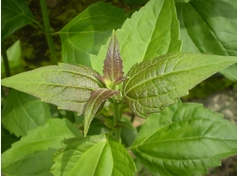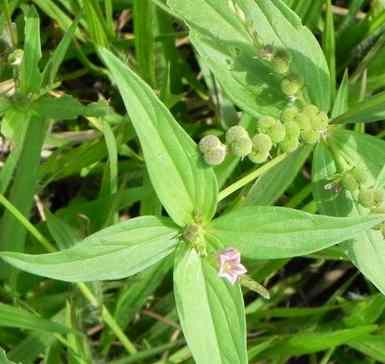
support@yorubalibrary.com
+2348073529208, 07038599574

Chromolaena odorata, commonly known as siam weed, is a significant plant in Yoruba traditional medicine. This herb is valued for its numerous therapeutic properties, which are employed to treat various ailments. The Yoruba people have long utilized Chromolaena odorata for its potent healing benefits.
Key Facts
Category: Leaf
Botanical Name: Chromolaena odorata
Common Name: Siam Weed
Yoruba name: Ewe Akintola
Igbo Name: Nil
Hausa Name: Nil
Uses of Chromolaena odorata in Yoruba Medicine
In Yoruba traditional practices, different parts of the Chromolaena odorata plant are used for diverse medicinal purposes:
1. Leaves:
The leaves of Chromolaena odorata are renowned for their wound-healing properties. They are often crushed and applied as a poultice to cuts and wounds to promote healing and prevent infections. The leaves are also used to treat skin conditions and inflammation.
2. Stems:
The stems of the plant are utilized for their antimicrobial properties. They are typically boiled to create a decoction that helps in treating infections and purifying the blood.
3. Roots:
The roots of Chromolaena odorata are used to treat digestive issues. They are boiled to make a tea that helps alleviate stomach pains, diarrhea, and other gastrointestinal problems.
4. Flowers:
The flowers of this plant are used in traditional remedies for respiratory conditions. They can be dried and brewed into a tea to help relieve symptoms of coughs and colds.
Want to treat common ailments such as Malaria, Cough, Measles, Typhoid, Pile etc naturally without spending much? Grab a copy of Authentic Herbal Solutions: 15 Common Ailments & Their Natural Cures. A practical eBook recommended for everyone regardless of tribe, religion or association. Order below or Download sample here
AUTHENTIC HERBAL SOLUTION #4KOne Yoruba proverb says "Bí olóde ò kú, òde rè kì í wu Gbégi". Do you know that Gbégi is actually a leaf/plant? Get Yoruba Proverbs on Plants and Herbs, which is a collection of Untold Wisdoms Hidden in Leaf and plants comprising their Life Applications & Moral Teachings. Order below or download sample here
YORUBA PROVERBS ON PLANTS #4KMedicinal Value of Chromolaena odorata
The medicinal value of Chromolaena odorata is attributed to its bioactive compounds, which offer a range of health benefits:
1. Wound Healing: The leaves contain compounds that promote rapid healing of wounds and cuts. They also have antimicrobial properties that prevent infections and reduce inflammation.
2. Anti-Inflammatory Effects: The plant's leaves and stems help reduce inflammation, making them effective in treating conditions like arthritis and skin irritations.
3. Antimicrobial Properties: Chromolaena odorata has strong antimicrobial effects, which help in treating and preventing bacterial and fungal infections.
4. Digestive Health: The roots of the plant aid in improving digestive health, helping to alleviate issues such as stomach pain, diarrhea, and indigestion.
5. Respiratory Health: The flowers are effective in treating respiratory conditions, providing relief from coughs, colds, and other related symptoms.
Conclusion
Chromolaena odorata (Ewe Akintola) is a versatile and potent herb integral to Yoruba traditional medicine. Its various parts, from the leaves to the roots, offer numerous health benefits, including wound healing, anti-inflammatory effects, antimicrobial properties, and digestive and respiratory health support. By incorporating Chromolaena odorata into their healing practices, the Yoruba people continue to harness the natural power of this remarkable plant.
Have you heard of our Yoruba Herb Dictionary? This contains names of Yoruba Leaf, Roots, Barks, Characteristics, Properties & Identification with HD Pictures. Order below or download sample here
A-Z HERBS & LEAF DICTIONARY #4K
Know more about the Yoruba traditional uses and he…

Learn about Ewe Aran, a potent Yoruba medicinal le…